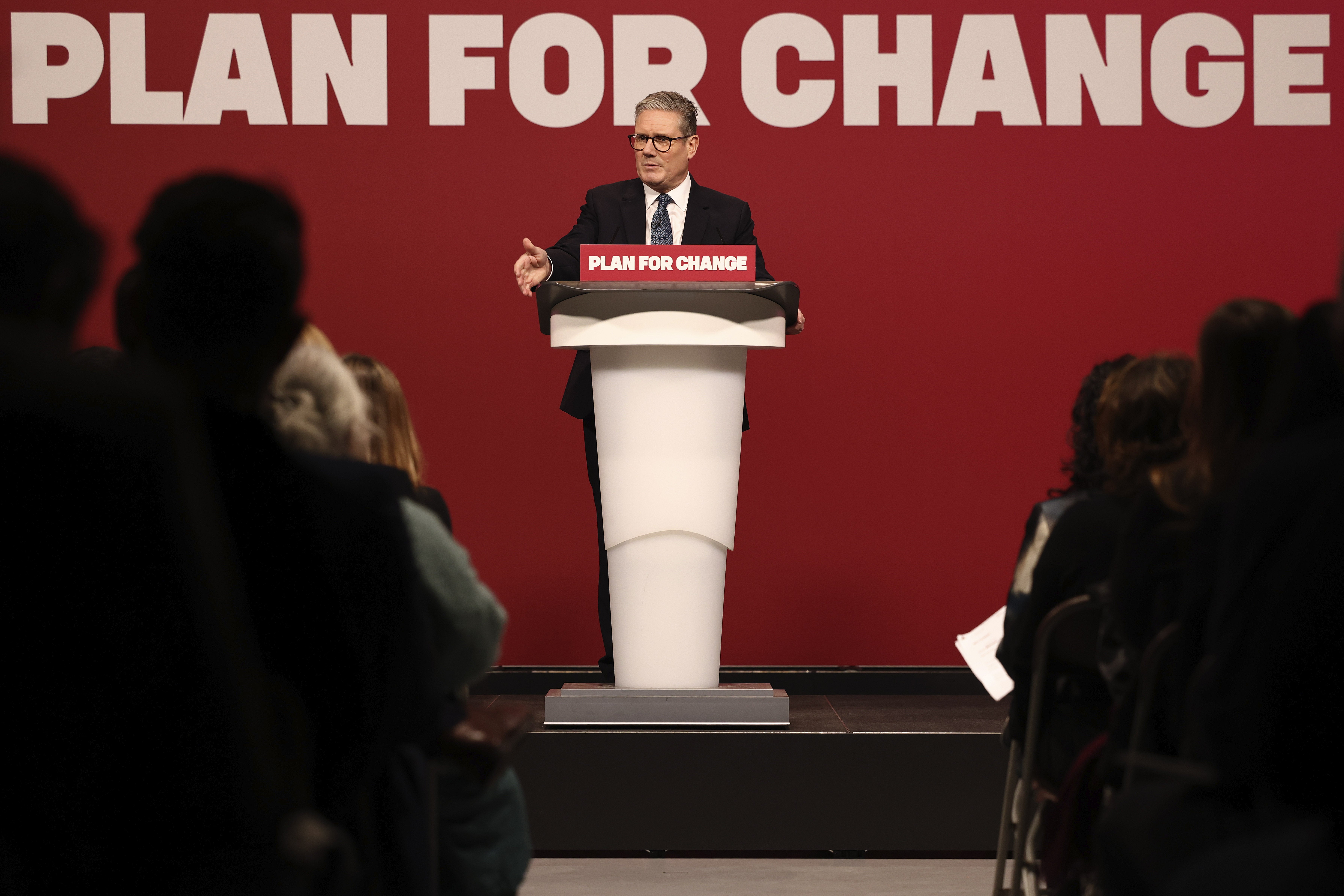Starmer pledges ‘golden era of building’ as he takes aim at environmental regulations
Sir Keir Starmer describes environmental regulations blocking building projects as nonsense
Your support helps us to tell the story
From reproductive rights to climate change to Big Tech, The Independent is on the ground when the story is developing. Whether it's investigating the financials of Elon Musk's pro-Trump PAC or producing our latest documentary, 'The A Word', which shines a light on the American women fighting for reproductive rights, we know how important it is to parse out the facts from the messaging.
At such a critical moment in US history, we need reporters on the ground. Your donation allows us to keep sending journalists to speak to both sides of the story.
The Independent is trusted by Americans across the entire political spectrum. And unlike many other quality news outlets, we choose not to lock Americans out of our reporting and analysis with paywalls. We believe quality journalism should be available to everyone, paid for by those who can afford it.
Your support makes all the difference.Sir Keir Starmer has vowed to usher in a "new golden era of building" as he takes aim at "blockers and bureaucrats" who he claims have throttled economic growth and made homeownership unattainable.
Writing in The Times, the prime minister attacked nimbys and environmentalists who he says have stymied economic progress in the UK. Sir Keir has directed ministers to draft laws that would simplify complex environmental regulations, which he argues can add millions to the cost of development and cause lengthy delays.
These proposed reforms aim to eliminate the "case-by-case negotiations" currently required under habitat regulations inherited from EU law. By allowing developers to offset environmental damage by funding broader environmental improvements, Sir Keir hopes to avoid protracted negotiations over individual projects.

He highlighted the HS2 project, which was compelled to spend £100 million constructing a tunnel for bats, as an "absurd spectacle" that must end. "This government will not accept this nonsense any more," he said.
Ministers are considering designating specific areas of the country as key infrastructure sites to expedite project approvals. This move would streamline the process, allowing projects to avoid the lengthy and uncertain approval procedures currently in place.
Sir Keir’s comments came as he unveiled a new "plan for government" focused on six key areas: health, housebuilding, education, the economy, crime, and net zero. He said these milestones would enable the public to hold the government accountable by the next election.
However, Sir Keir faced criticism for appearing to dilute Labour’s election pledge to generate "100 per cent" clean power by 2030 and for not setting specific targets to reduce either legal or illegal migration.
Central to Sir Keir’s economic strategy is Labour’s target of building 1.5 million homes by 2030 and fast-tracking planning decisions on 150 major infrastructure projects. He promised to build "roads, grid connections, laboratories, train lines, warehouses, wind farms, power stations," and to confront the "alliance of naysayers" that he says have impeded progress.
Writing in The Times, Sir Keir explicitly targeted those who use environmental regulations to delay building, asserting that he would not shy away from confronting local development opponents. He described rising homelessness and falling homeownership as "a shame and a failure of our politics."
He lamented Britain’s failure to build a reservoir for over 30 years and criticized the "endless hoops" that every infrastructure project must jump through, only to face opposition and delays. Using the example of the costly bat tunnel in the HS2 project, he underscored the need for more efficient processes.
Sir Keir pledged to double infrastructure project approvals compared to the previous Conservative government, acknowledging that both the government and developers would need to "stretch ourselves to the max" to achieve these goals.
He anticipated resistance to his planning reforms but welcomed the challenge, saying: "I always knew there would be resistance to our planning reform. Let me say this — I won’t shy from this argument. In fact, I welcome it. Where there are blockers putting the brakes on, it’s a sign you are delivering real change."
Sir Keir’s remarks coincided with deputy prime minister Angela Rayner approving a multimillion pound plan by Marks and Spencer to redevelop its flagship Oxford Street store, a project previously blocked by Michael Gove. Stuart Machin, M&S’s chief executive, expressed his satisfaction with the decision but criticized the "three unnecessary years of delays, obfuscation and political posturing" under the previous government.

Join our commenting forum
Join thought-provoking conversations, follow other Independent readers and see their replies
Comments